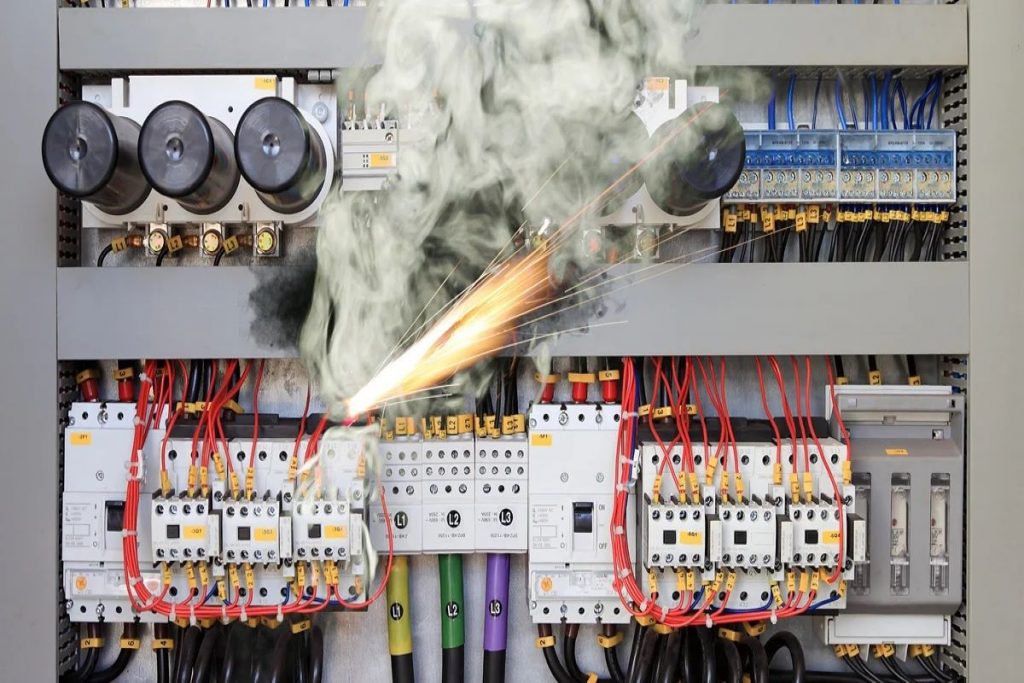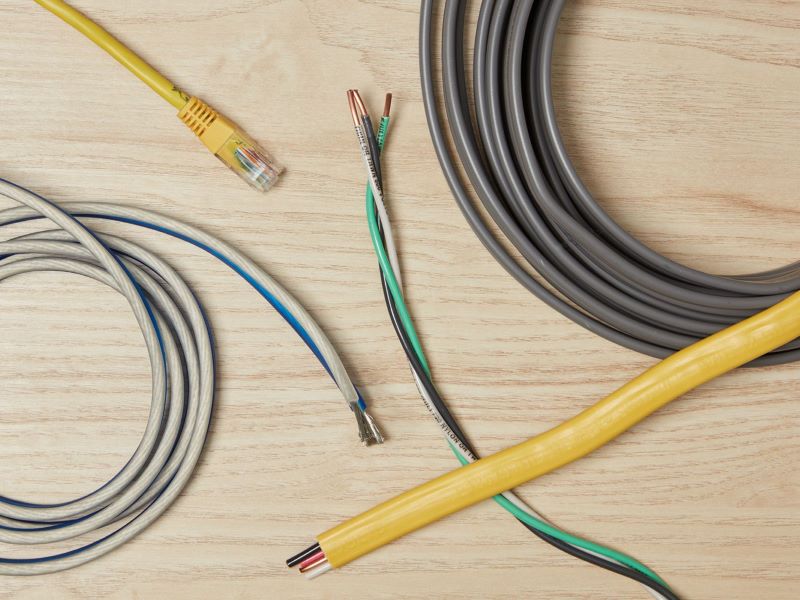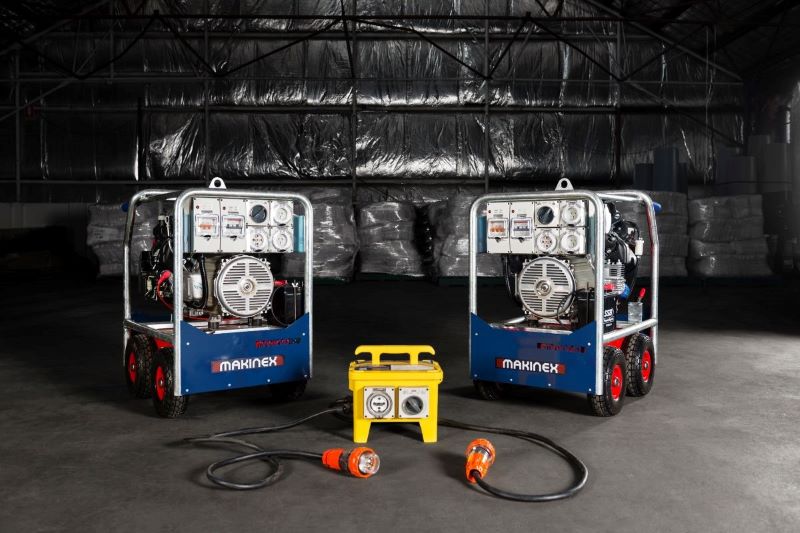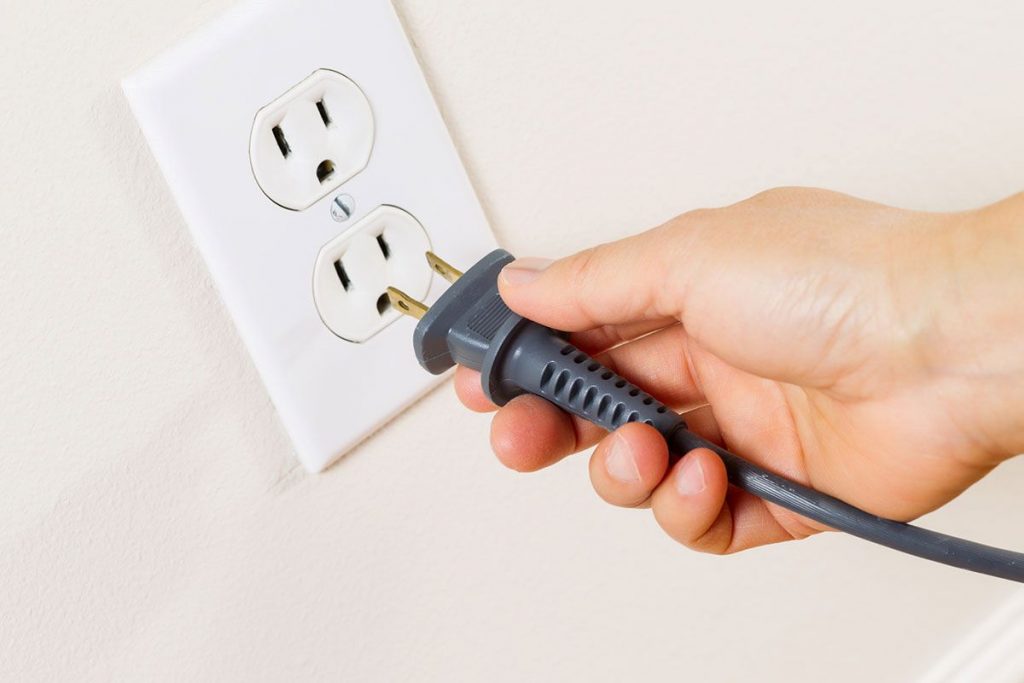Table of Contents
Electricians are trained and licensed tradespeople whose skills are in high demand. Electrical systems are everywhere, which means electricians are needed to make our lives convenient and comfortable.
Many electricians work alone, but some work for companies or partner with other contractors to provide their specialized skills in new developments. There are pros and cons to both working alone and working for someone else. For example, most employers will have workers’ compensation for electricians, which can be helpful since working with electricity can be dangerous.
There are many specialized areas of work an electrician may choose to do. From residential and commercial jobs to industrial power plants, and more, an electrician has many options when it comes to choosing a career path.
If you are considering becoming an electrician, read on to explore several of the specialized areas you may want to consider. We will cover the duties of each specialty and the salary range you can expect.
1. Residential Electrician
A residential electrician is the most common type of electrician. These workers handle all the electrical systems, including wiring, that are installed in a home. Duties of this type of electrician include repairing and replacing old electrical systems, installing lighting, ensuring all electrical systems are functioning properly, and understanding and following local and national electrical safety guidelines.
According to ZipRecruiter, the average pay for a residential electrician is about $54,000 a year in the US.
2. Commercial Electrician
The average hourly pay for a commercial electrician in the US is between $17.03 and $36.45, according to Indeed. This type of electrician is responsible for installing, repairing, and maintaining all electrical systems in commercial settings like shopping malls, office buildings, and restaurants.
3. Maintenance Electrician
People call a maintenance electrician to ensure all their electrical systems are in good working order. From checking for faulty wiring to making sure everything is up to code, a maintenance electrician works with a customer to create a maintenance schedule or repair plan. This type of electrician can work in residential, commercial, or industrial settings.
Salary.com lists the average salary for a maintenance electrician in the United States as $66,844.
4. Electrotechnical Panel Builder
As the name suggests, an electrotechnical panel builder does just that – builds and maintains electrical panels, such as those used in HVAC systems and other industrial equipment. Using programmable logic and information technology, this type of electrician wires and assembles large electrical boxes for today’s industrial machines. They also read panel layout blueprints and electrical schematics.
If you choose this field of expertise, you can expect to earn an average salary of $49,644 per year, according to Glassdoor.
5. Avionics Electrician
If you are looking to go into an exciting and challenging electrical field, an avionics electrician is just the ticket. This type of electrician is responsible for the wiring and electrical systems aboard aircraft. In this field, electricians install wiring, making sure each wire and the connection is insulated properly. They must also ensure each aircraft component (autopilot, radars, motors, compressors, etc.) has the correct voltage as aircraft must meet strict safety requirements.
As stated on Indeed, the average annual salary in the US for an avionics electrician is $46,569.
The fields of expertise listed above are just a few of the areas you may want to consider if you’re interested in a career as an electrician. The work is as fascinating as it is challenging, with every job bringing something new and exciting to the table.
Electrician Salaries and Specializations: Exploring the High-Paying Trades and In-Demand Jobs in the Electrical Industry
Electricians are essential professionals who install, repair and maintain electrical systems in buildings, homes, and industrial facilities. The field of electrical work offers a wide range of opportunities for individuals with different interests and skill sets. In this article, we will discuss the different types of electricians and their salaries, types of electrical work, the best type of electrician, highest paid types of electricians, the difference between 01 and 02 electricians, types of electrician licenses, electrician specializations, electrician salary, and other related questions.
Types of Electricians and their Salaries
There are various types of electricians, including residential electricians, commercial electricians, industrial electricians, maintenance electricians, and others. Residential electricians typically work in homes and apartments, while commercial electricians work in public and private commercial buildings. Industrial electricians specialize in industrial equipment and machinery. Maintenance electricians perform routine maintenance and repairs of electrical systems. The average salaries of electricians vary depending on the type of work they do. According to the Bureau of Labor Statistics (BLS), the median annual wage for electricians was $56,180 as of May 2020.
Types of Electrical Work
Electrical work involves different types of tasks such as installation, repair, maintenance, and troubleshooting of electrical systems. Installation electricians install new electrical systems and equipment, while repair electricians troubleshoot and fix electrical problems in existing systems. Maintenance electricians perform routine maintenance of electrical systems to prevent issues. Troubleshooting electricians diagnose and fix electrical problems in equipment or systems. The salary for each type of electrical work also varies, with installation electricians typically earning more than repair electricians.
Electrician Specializations
Electricians can specialize in various fields, including automation, renewable energy, telecommunications, and others. Automation electricians install and maintain automated systems in factories and other industrial facilities. Renewable energy electricians install and maintain solar, wind, and other renewable energy systems. Telecommunications electricians install and maintain communication systems such as phone and internet lines. Each of these specializations requires specific knowledge and skills and has its salary range.
Types of Electrician Licenses
Electricians must have a license to work in their field. There are different types of licenses, including journeyman, master, and contractor licenses. A journeyman electrician can work independently but under the supervision of a master electrician. A master electrician has more experience and can work independently, design electrical systems, and supervise other electricians. A contractor license allows electricians to run their own businesses. The salary for each type of electrician license varies based on experience, specialization, and type of work.
Highest Paid Types of Electricians
Industrial electricians and electrical engineers are some of the highest-paid types of electricians. Industrial electricians install, maintain, and repair electrical systems in factories and industrial facilities. Electrical engineers design and develop electrical systems for a wide range of applications. These types of electricians require specialized knowledge and experience and have high salaries compared to other types of electricians.
Difference Between 01 and 02 Electrician
In some states in the US, electricians are categorized based on the type of work they do. An 01 electrician installs and maintains electrical systems in residential buildings. An 02 electrician installs and maintains electrical systems in commercial buildings. The salary for each type of electrician is similar, with the main difference being the type of work they do.
Electrician Salary
The salary of an electrician depends on several factors such as experience, location, and specialization. According to the BLS, the median annual wage for electricians was $56,180 as of May 2020. However, electricians in some states, such as Alaska, Illinois, and Hawaii, earn higher salaries compared to those in other states.
Frequently Asked Questions About Electricians: Everything You Need to Know About Salaries, Specializations, and Job Opportunities
Which Type of Electrician is Best?
The best type of electrician depends on individual preferences, skills, and interests. Some electricians enjoy working on residential projects, while others prefer commercial or industrial projects. Choosing the right type of electrician requires considering factors such as job satisfaction, career advancement opportunities, and salary.
Highest Electrician Job
The highest electrician job is typically a master electrician or electrical engineer. These professionals have advanced knowledge and skills in the field of electrical work, and their salaries reflect their expertise and experience.
Where Will There Be the Most Jobs for an Electrician?
Electricians are in high demand in various industries, including construction, manufacturing, and renewable energy. The construction industry is expected to have the highest demand for electricians, with an estimated 10% job growth rate from 2020 to 2030.
What is the Lowest Level of Electricians?
The lowest level of electricians is typically an apprentice electrician. Apprentice electricians receive on-the-job training and work under the supervision of journeymen or master electricians.
Where is the Highest Paid Electrician?
The highest-paid electricians are typically found in states with high demand for electricians, such as Alaska, Illinois, and Hawaii. In these states, electricians earn higher salaries due to the high cost of living and high demand for their services.
Who is the Richest Electrician in the World?
There is no publicly available data on the richest electrician in the world. However, some electricians have become successful entrepreneurs, such as David Osborn, who founded the real estate company GoBundance and has a net worth of $20 million.
What Degree Do Most Electricians Have?
Most electricians do not have a degree but receive training through apprenticeship programs or vocational schools. However, some electricians pursue associate or bachelor’s degrees in electrical engineering or related fields to advance their careers.
What is the Highest Salary of a Diploma Electrician?
The highest salary of a diploma electrician depends on various factors such as experience, location, and type of work. According to the BLS, the median annual wage for electricians with a diploma or certificate was $56,180 as of May 2020.
Do Electricians Have High Job Satisfaction?
Electricians generally report high job satisfaction due to the hands-on nature of their work and the opportunity to solve complex problems. According to a survey by Payscale, electricians report an average job satisfaction score of 3.8 out of 5.
What is the Best Country to be an Electrician?
The best country to be an electrician depends on individual preferences, but some countries with high demand for electricians and competitive salaries include the United States, Canada, Australia, and the United Kingdom.
What are the Top Three Industries that Employ Electricians?
The top three industries that employ electricians are construction, manufacturing, and government. Electricians in the construction industry typically work on residential and commercial projects, while those in manufacturing work in industrial facilities. Electricians in the government sector typically work in public buildings and facilities.
What is the Most Profitable Electrical Work Option?
The most profitable electrical work option depends on individual preferences, but some options with high earning potential include industrial and automation electricians and renewable energy electricians.
How Many Types of Electricians Are There?
There are various types of electricians, including residential electricians, commercial electricians, industrial electricians, maintenance electricians, automation electricians, renewable energy electricians, telecommunications electricians, and others.
Is Being an Electrician Low Stress?
Being an electrician can be stressful due to the nature of the job, which involves working with electricity and potentially dangerous equipment. However, many electricians report high job satisfaction due to the opportunity to solve complex problems and work on interesting projects.
What is Level 5 Electrical Engineering
Level 5 electrical engineering refers to a level of qualification in the United Kingdom’s education and skills framework. It is equivalent to a foundation degree or higher national diploma and is typically earned through vocational or technical education programs. Level 5 electrical engineering programs focus on advanced topics such as power systems, control systems, and electrical design, and prepare graduates for roles such as electrical engineers or project managers.
What Type of Electrician Gets Paid the Most in Australia?
The type of electrician that gets paid the most in Australia depends on various factors such as location, experience, and type of work. However, some types of electricians with high earning potential in Australia include industrial electricians, mining electricians, and renewable energy electricians.
What is the Highest Paid Welding Job?
Welding jobs typically pay less than electrician jobs, but some types of welding jobs can be high-paying. The highest-paid welding job is typically an underwater welder, who performs welding in deep water environments such as offshore oil rigs. According to the American Welding Society, some underwater welders can earn up to $300,000 per year.
Are Electricians in Demand in Canada?
Electricians are in high demand in Canada, with an estimated 14,400 job openings from 2021 to 2023. The demand for electricians is driven by factors such as infrastructure investment, renewable energy initiatives, and the retirement of experienced electricians.
Do Electricians Have a High IQ?
IQ is not a reliable indicator of an electrician’s intelligence or skill level. However, electricians typically have strong problem-solving skills and technical aptitude, which are important for success in the field.
How Old Are Most Electricians?
The age of electricians varies, but according to a survey by the National Electrical Contractors Association, the median age of electricians in the United States was 55 as of 2018. This age trend highlights the need for younger individuals to enter the profession to replace retiring electricians and fill the increasing demand for skilled labor.
What is the Most A Master Electrician Can Make?
The salary of a master electrician varies depending on factors such as location, experience, and type of work. However, according to the BLS, the median annual wage for electricians, including master electricians, was $56,900 as of May 2020.
Who Makes More Money, Electricians or Plumbers?
The salaries of electricians and plumbers vary depending on factors such as location, experience, and type of work. However, according to the BLS, electricians typically earn slightly more than plumbers, with a median annual wage of $56,900 compared to $55,160 for plumbers as of May 2020.
What is the Highest Paying Trade?
An electrician is one of the highest paying trades, but other trades with high earning potential include plumber, HVAC technician, and construction manager.
What is the Difference Between Industrial Electricians?
The difference between industrial electricians and other types of electricians is the type of work they perform. Industrial electricians work in industrial facilities such as factories and power plants and typically perform tasks such as installation, maintenance, and repair of industrial equipment.
How Much Does an Electrician Make in Dubai?
The salary of an electrician in Dubai varies depending on factors such as experience, qualifications, and type of work. However, according to Gulf News, the average salary for an electrician in Dubai is approximately AED 3,500 per month, or around $950 USD.








